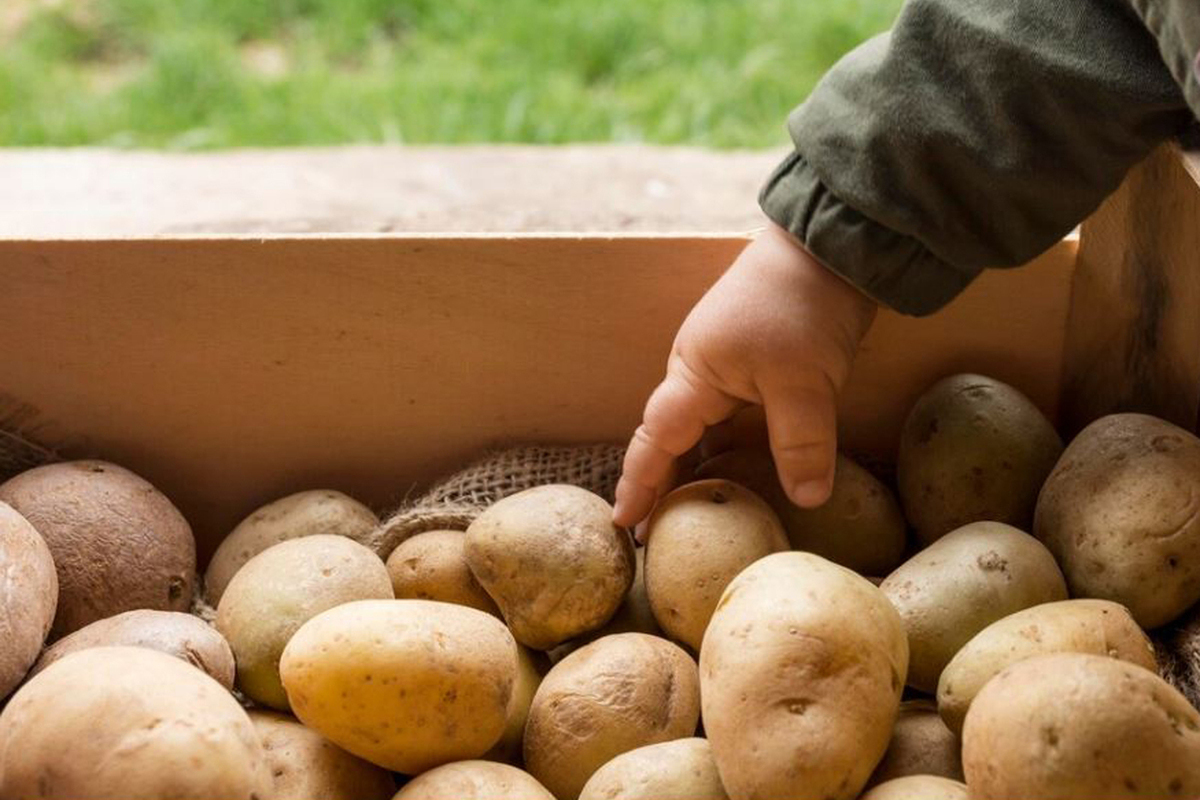Due to a serious illness, Russians were banned from planting potatoes for three years
[ad_1]

So far, quarantine has been introduced in three regions
In the fall of this year, residents in several regions of Russia received dire warnings about quarantine for potato diseases. In particular, two diseases, according to officials from Rosselkhoznadzor, threaten residents of the Tver and Yaroslavl regions. Quarantine measures are serious: from a ban on using your own seed material to a three-year “stop” on growing potatoes in gardens. Under what conditions can this become a reality, MK found out.
The first of the diseases for which quarantine involves abandoning one’s own seeds is potato spindle tuber viroid. “The main symptoms are curling of leaves, yellowing (often in spots), shrinkage and general depression of the plant,” the information leaflet notes. The second is bacterial brown rot of potatoes. As noted in the leaflet distributed in the Yaroslavl region, this disease is typical for a warm and humid climate (whether the north of central Russia has a warm climate is a separate question).
The quarantine measures prescribed by Rosselkhoznadzor are the same for both diseases. First and key: it is prohibited to use any potatoes grown in the outbreak of the disease for seeds. It can be used for food and feed purposes, but only after scalding at a temperature of at least 95 degrees. It is also prohibited to use agricultural tools and equipment that were used in the outbreak of the disease in other areas before sanitation.
In general, the protocol requires burning or otherwise safely disposing of potato tubers, tomatoes and peppers from the fire; however, they can only be composted in officially designated burial grounds. In the same way, it is necessary to destroy the tops, as well as the mineral substrate. And tools and potato storage facilities must be treated with the same hot steam or chlorine agents.
Finally, it is impossible to grow nightshades: potatoes, tomatoes, peppers in the outbreak of the disease (they must be replaced in the garden with plants that are not susceptible to this disease, Rosselkhoznadzor insists). All of the above quarantine measures are valid for three years from the date of discovery of the “infection”.
Thus, if we take quarantine measures literally, this is extremely serious for those rural areas and small towns where these diseases are found. For three years, residents are prohibited from growing potatoes – that is, personal farms are deprived of important help. The ban on using home-grown tubers for seeds is also a serious restriction: for many residents of villages and small towns this is both a significant source of income in the spring (selling seed potatoes to summer residents) and an opportunity to cultivate their own varieties, familiar and studied, with the desired organoleptic qualities.
“If you now prohibit planting your own potatoes, varieties such as “sineglazka” may remain only in history,” notes Olga Pashkina, the owner of a seed and agrochemical store. – Large farms and agricultural holdings do not deal with such varieties – in the last 20 years they have always been bought on the market, from private gardeners. And the demand is huge: tubers are sold out already in April. Ban the sale of seed potatoes in markets – that’s it, the blue-eyed potato will disappear forever. And this is not the only such potato variety, just the most famous.
True, it must be said that information leaflets distributed throughout the regions and districts are not yet an announcement of quarantine, but on the contrary: as employees of the Rosselkhoznadzor department for the Tver and Yaroslavl regions explained to MK, they informed residents “due to the high risk of introduction of quarantine objects from imported potatoes.” They say, it’s better to buy your own – otherwise, you never know, we’ll ban growing potatoes in gardens!
“Before the last border closures, we had Dutch and German seed potatoes, but now there are almost none of them in retail,” says Olga Pashkina. — But among imports, Belarusian is well represented – there is a lot of it, and often Russian in the markets is presented as from Belarus. I don’t know why – it seems that the word “Belarusian” has simply become a sign of a good price-quality ratio. One way or another, Belarusian seed potatoes differ little from Russian ones, but sometimes – when they are sold directly from the truck – they are cheaper.
So, the fight against dumping Belarusian potatoes?.. Perhaps. However, so far there have been no mass “potato quarantines” in Russia. But how this happens in the execution of the same Rosselkhoznadzor can be seen in the example of livestock quarantines. The most famous disease that can ruin a farmer and his farm is African swine fever (ASF). In those areas where quarantine has been declared for this disease, keeping pigs on subsidiary farms is prohibited, and existing livestock must be disposed of. Of course, without compensation. By the way, the new rules for keeping farm animals also prohibit feeding piglets with table scraps – this makes keeping a pig on a private farm simply unprofitable. By a strange coincidence, ASF outbreaks are more often recorded in those areas where powerful industrial pig farms have recently appeared – everything is in order with the epidemiological situation…
Newspaper headline:
Three years without potatoes
[ad_2]
Source link






